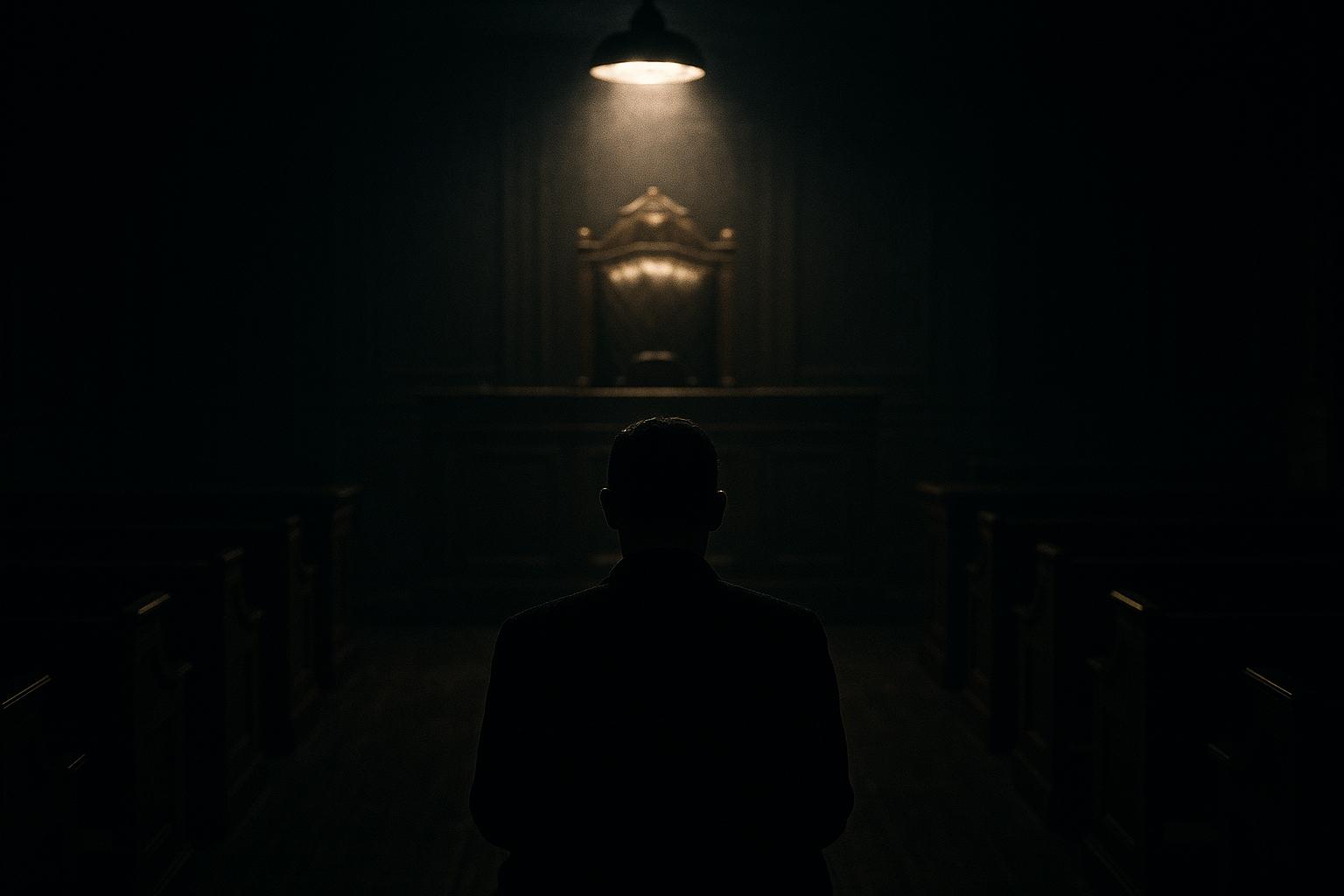Emily Burns’s contemporary production of Shakespeare’s Measure for Measure at the Royal Shakespeare Theatre delivers a potent examination of power, hypocrisy, and moral double standards, drawing stark parallels between the play’s dark political themes and modern-day scandals. Set against a sleek and striking stage design by Frankie Bradshaw, which evokes a polished battlefield of glass and chrome touched with parliamentary green, the production starkly echoes today’s political landscape, where puritanical morality and religion are often weaponised by right-wing actors to maintain control.
The opening sequence, crafted by Zakk Hein, launches the audience into this resonant world with a montage spotlighting notorious figures whose reigns have been marred by sex scandals and abuse of power, including Bill Clinton, Donald Trump, Jeffrey Epstein, and Prince Andrew. This explicit framing brings Shakespeare’s exploration of sexual politics into sharp contemporary focus, making the narrative not just a historical curiosity but a commentary on ongoing societal struggles with justice and accountability.
Central to the production’s power is Tom Mothersdale’s portrayal of Angelo, whose rigid enforcement of moral law conceals a deeply conflicted and hypocritical man. Mothersdale humanises Angelo, depicting him as a figure both repellent and pitiable, wrestling with his desires even as he sentences Claudio (Oli Higginson) to death on a technicality for a private transgression involving his betrothed, Juliet (Miya James). His subsequent attempt to coerce Isabella (Isis Hainsworth) into sexual submission in exchange for her brother’s life encapsulates the abuse of power that lies at the heart of the drama. The famous line, “Who will believe thee?” painfully underscores the ongoing societal distrust of women’s testimonies, resonating with contemporary movements like #MeToo that challenge such systemic silencing.
Burns’s production notably dispenses with the comedic subplot involving Elbow and Mistress Overdone, a bold choice that transforms the play into a more solemn, intense meditation on corruption and control without the relief of humour. Yet, even amid this austerity, moments of biting satire emerge—such as Lucio’s (Douggie McMeekin) boisterous interruptions and Angelo’s shameful attempts to cover his disgrace—which highlight the absurdity beneath their authoritarian façades.
Isis Hainsworth’s Isabella is a standout, evolving from an innocent, almost naïve figure clad in a symbolic gingham dress to a fiercely defiant force. This growth provides a contemporary lens on her character's complex negotiation between moral conviction and pragmatic survival. The production’s handling of the Duke’s uneasy marriage proposal to Isabella is particularly noteworthy; where traditional stagings might suggest another layer of coercion, Burns’s interpretation leaves the ending open to a more hopeful reading, offering Isabella a form of liberation rather than further subjugation.
The cast overall delivers precise and crystalline verse work, with Adam James’s Duke Vincentio embodying a power-player whose manipulations behind the scenes shape the tragic moral quagmire. Mariana (Emily Benjamin), hardened yet nuanced, complements the central triangle and is integral to a bold reinterpretation of the bedroom swap scene, underscored by an evocative use of Elvis Presley’s Can’t Help Falling in Love that reinvents the sex scene as a charged power play.
The production’s soundscape, created by Asaf Zohar, adds both atmosphere and tension, with recurring musical motifs that punctuate scenes, while Joshua Pharo’s lighting expertly heightens dramatic moments through focused spotlights and strategic contrasts.
Measure for Measure in this form strips away distractions to confront audiences with the enduring relevance of Shakespeare’s insights into power, justice, and sexual politics. By drawing uncomfortable yet compelling parallels to the politics of today, this Royal Shakespeare Company staging is both a timely reminder and a call to reflection on how structures of authority continue to exploit morality as a weapon.
📌 Reference Map:
- Paragraph 1 – [1], [2], [5]
- Paragraph 2 – [1], [2], [5]
- Paragraph 3 – [1], [3], [6]
- Paragraph 4 – [1], [3], [7]
- Paragraph 5 – [1], [2], [3], [5]
Source: Noah Wire Services
